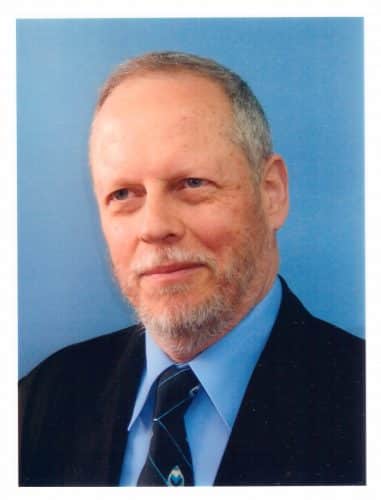Science Minister Ofir Akunis: "Professor Blay will contribute his excellent abilities and experience to the advancement of Israeli science and R&D"

The Civil Service Commission approved the appointment of Professor Alexander Blay as the Chief Scientist of the Ministry of Science.
Science Minister Ofir Akunis welcomed the appointment and told Blay: "A lot of work and great challenges have been prepared for us. The main task of the chief scientist is to empower Israel as a leader in innovation and to establish it as a leading country in groundbreaking research at the international level. There is no doubt that Prof. Blay's impressive experience and abilities over the years will be of great help, not only to the Ministry of Science, but to the entire State of Israel and our mighty R&D and technology industries."
Prof. Alexander Blay, Deputy Dean of the Faculty of Social Sciences and Humanities at Ariel University, has been a senior faculty member at Ariel University since 1998 and has served as the head of various departments. Established the Israel and Israel Studies Department, which combines political science studies with regional studies, at Ariel University. Recently, by virtue of his position, he led to the signing of cooperation agreements with universities abroad, including in China.
Prof. Blay completed his undergraduate studies in Arabic language and literature and Middle Eastern studies at the Hebrew University. He received his master's degree at Tel Aviv University. Upon completing his studies in Israel, he went to the USA to study at Columbia University in New York where he graduated with a doctorate degree (1981) and upon his return to Israel he was one of the staff of the Hebrew University as a research and teaching staff until 1997. In the late XNUMXs and early XNUMXs he served in the Prime Minister's Office and in his position The latter was the prime minister's adviser on Arab affairs. Over the years he has been a member of academic and public committees in government ministries and academia.
The Chief Scientist in the Ministry of Science and Technology is responsible for outlining, planning and determining the directions of the scientific activity of the Ministry. The Chief Scientist coordinates the Forum of Chief Scientists and in this framework also coordinates the scientific policy of all government ministries. The scientist is in charge of a wide professional team of scientific field managers and a deputy chief scientist works under him. The scientific directors are the professional scientific authority regarding the research proposals submitted to the Ministry and are responsible for labeling the contents, judging the submitted proposals and scientific monitoring of the implementation of the proposals supported by the Ministry.
Ariel University congratulates Prof. Alexander Blay on his appointment to the position of Chief Scientist in the Ministry of Science: "We are convinced that in light of his many years of involvement in a variety of scientific issues, Prof. Blay will succeed in promoting the research activities of the Ministry of Science for the benefit of the entire State of Israel and in particular in strengthening scientific activity in the regional development centers on them In charge of the Ministry of Science." said in a statement published by the university.

2 תגובות
A considerable list of publications was found in the field of the professor's ID
https://www.liberty.edu/media/1191/Alexander-Bligh-Publications.pdf
Political operators are appointed to positions of scientific functionality. I see at least 3 scientific operators in the fields of psychology, literature, industry in academic research.
Without or with a connection - 47% are not eligible for the 2016 Israeli matriculation.
Regardless or with: Hebrew fell in the Shanghai ranking 20 places in the list of 100, because of a budget reduction that prevents them from hiring young lecturers. The method kills the branches on which we sit.
The Technion rose 8 places as befits an institution with 3-4 Nobel laureates.
To be honest, there are other reasons why Hebrew dropped, but not this time.